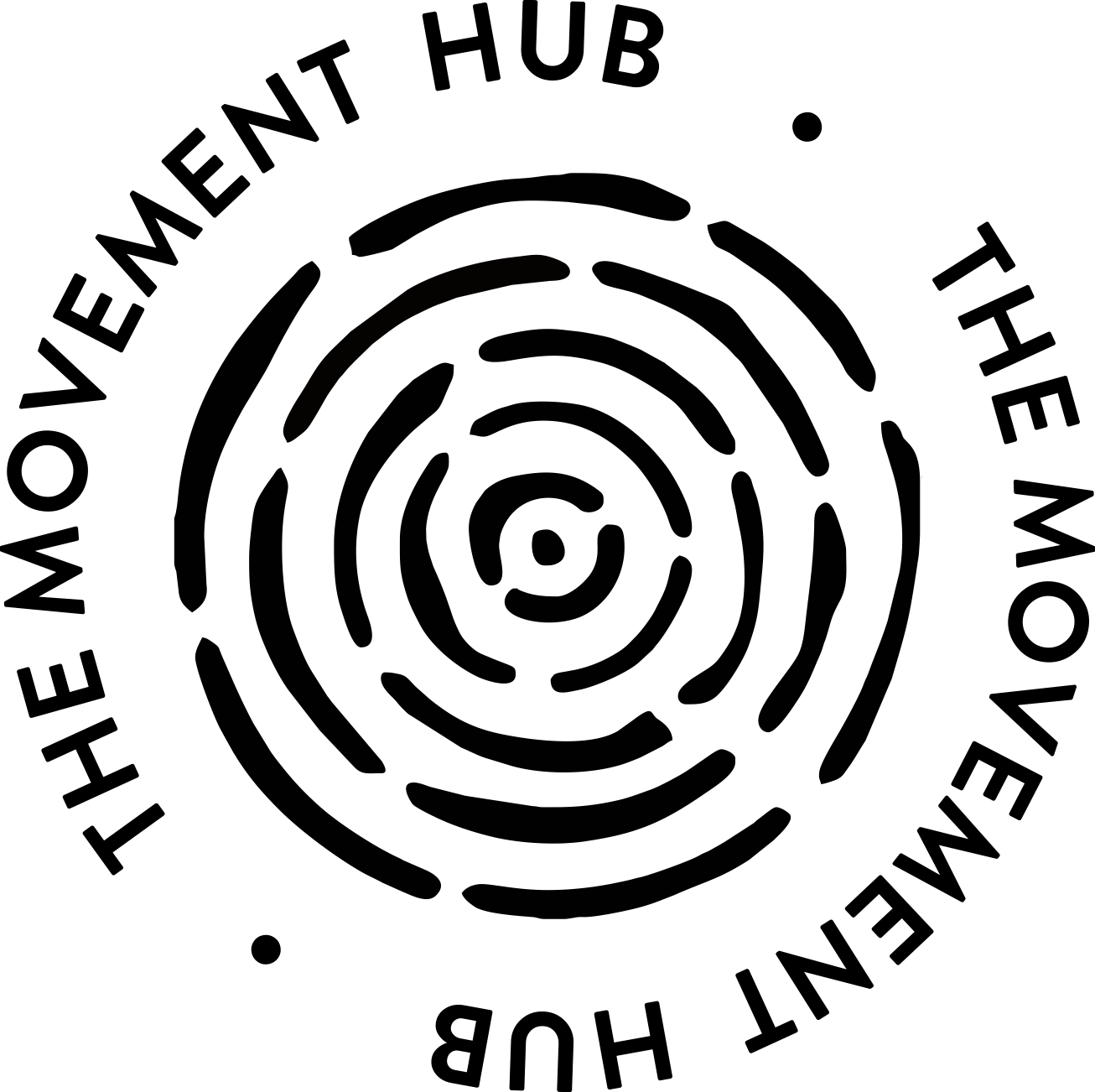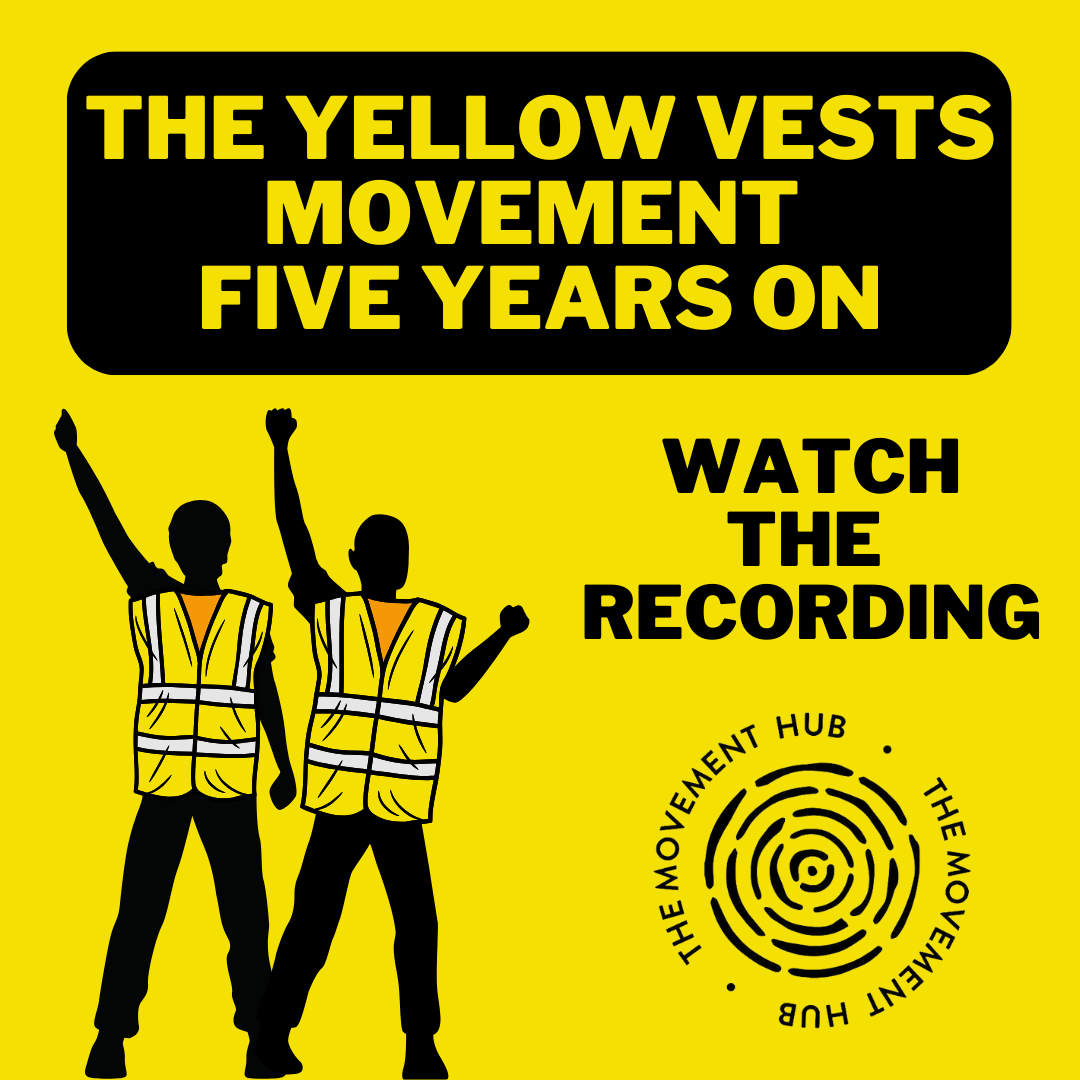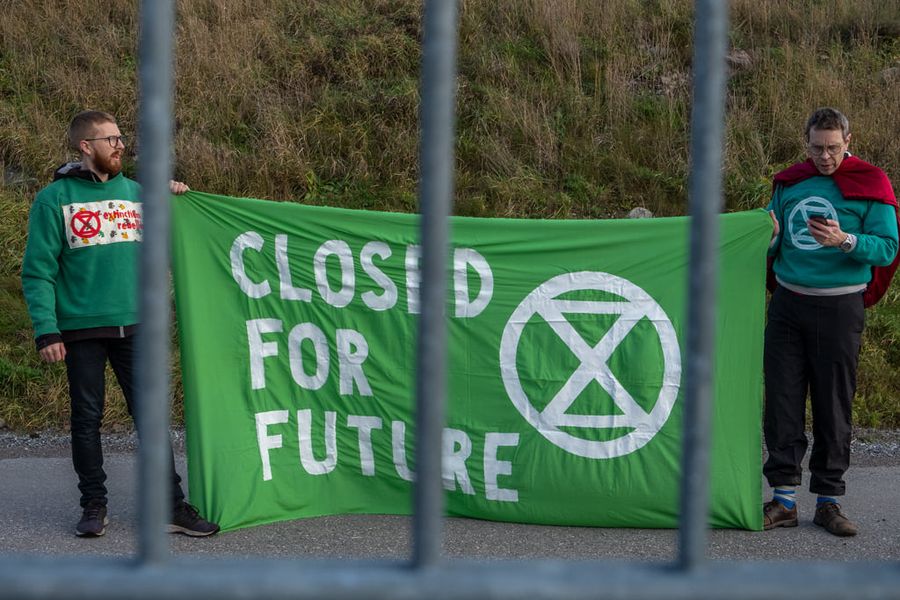As the Austrian government plans to expand the Lobau motorway, activists across Austria came together to oppose this polluting project. Whilst the world remains deeply car-centric, this action shows the appetite for greener and fairer forms of transport.
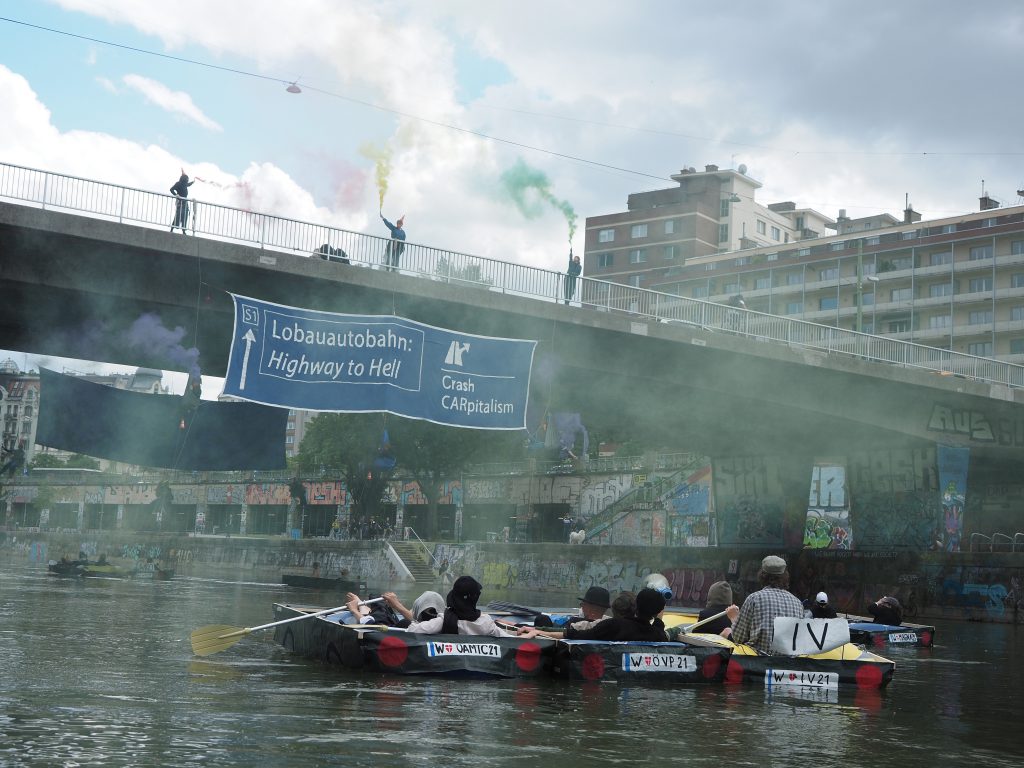
On Friday 28 May 2021, the Austrian climate justice group System Change not Climate Change staged a day of action in Vienna to draw attention to the damaging impact the Lobau motorway expansion would have on the climate. Over 150 activists gathered on the Aspern Bridge and on the Danube Canal below it. As Marcel Baumeister*, an activist involved in System Change not Climate Change, says, ‘it was a really colourful and diverse action, which at the same time felt very determined.’
Plans for the S1-Lobau motorway began in the 1970s, and activists have been fighting against it from the very beginning. As Baumeister explains ‘there has been opposition since the plans first emerged in the 70s and some of the citizens’ initiatives we’re working with founded themselves 20 years ago. They’ve done a lot in the past to build a foundation for the work we are doing now.’
The expansion of the Lobau motorway seemingly goes against Austria’s aim to become carbon-neutral by 2040, given the large part transportation plays in the country’s carbon emissions. Since 1990, emissions from the transportation sector specifically have risen by 74%, and there are projected to be 2 or 3 hours of traffic jams per day in the city as a result of the motorway. ‘This project is only going to drive us further into the climate crisis, and that’s why we need to make sure we stop it, and I believe we will stop it’, says Baumeister.
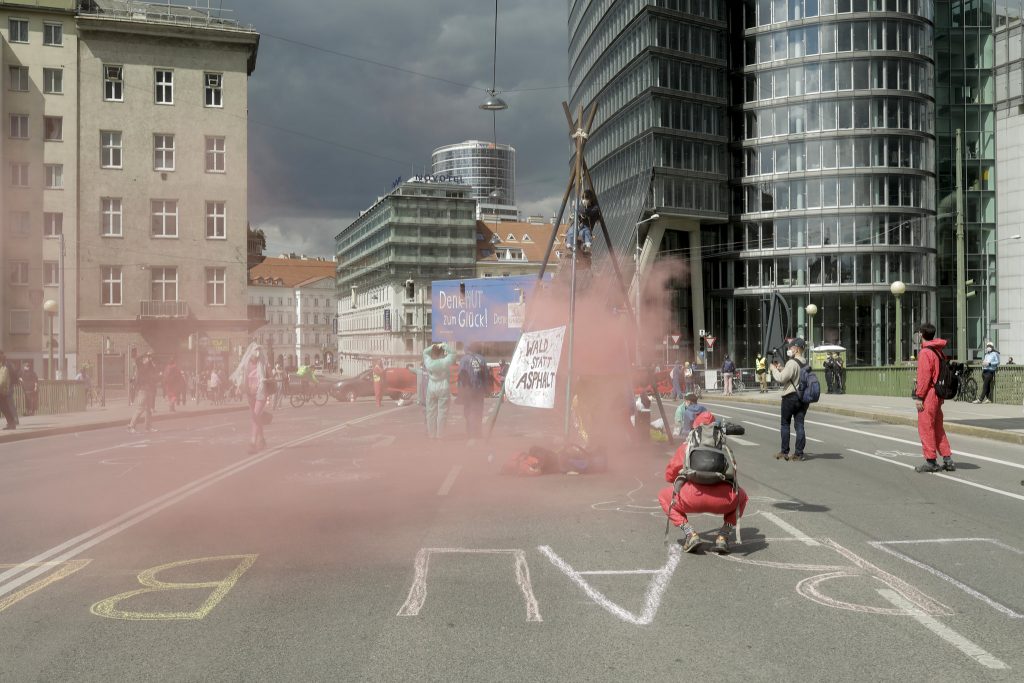
System Change not Climate Change have only been campaigning against the motorway expansion for six months, but already the campaign has had a great amount of success with groups like Extinction Rebellion, Fridays For Future, and local citizens’ initiatives actively supporting the campaign. ‘We’re really working together now as a climate justice movement fighting this road expansion project, and I think that’s already very powerful and can do a lot and will do a lot in the future’, explains Baumeister.
The campaign is part of Car-free Vienna, a mobility transformation campaign fighting for greener transport in the city. It was through Car-free Vienna that Baumeister became involved in System Change not Climate Change. After moving to Vienna to study, Baumeister was ‘surprised’ by how car-centric the city was, saying ‘it was about the time [that I moved] that System Change not Climate Change began their car-free campaign. The campaign really appealed to me, so I became active in the group’.
A key part of the campaign so far has been the action in May, which took place as part of the Vienna Climate Camp, an annual camp organised by System Change not Climate Change. Baumeister said ‘the camp always ends in a day of action so that we don’t just connect and learn about issues, we actually do something!’ For this action, activists created a colourful blockade on the bridge, which was symbolic of the increased wait times in traffic the motorway expansion would likely cause.
The protest was a colourful and positive display of passive resistance. A samba band played while people danced, and multi-coloured flares were let off on the bridge and boats to brighten up central Vienna.
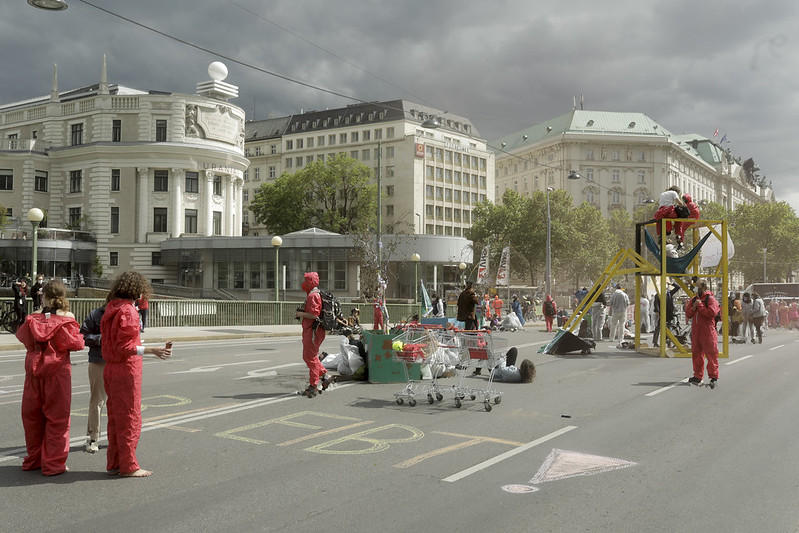
The group hung banners designed to look like road signs from the bridge, with statements such as ‘kapitalismus aufbrechen’ (‘crack capitalism’ in English) written on them. Boats designed to look like cars sailed beneath the sign. ‘We turned the central river in Vienna supposedly into the Lobau motorway’, says Baumeister, going on to explain that the action ‘made it clear that if the government actually wants to go through with this project then we will be there to put our bodies on the line and stop it.’
Work is scheduled to start on the expansion in the autumn. Baumeinster said the day of action left the group with a great sense of positivity about what they have the potential to achieve if the work does begin as scheduled, saying that ‘there were a lot of people whose first action it was, who are definitely going to be active still in late autumn if work on the motorway begins.’
When asked what Baumeister would say to someone who is considering looking for similar activist groups to Systems Change not Climate Change in their local or national area, his response was straightforward: ‘Do it! It’s our future that’s at stake and we need to fight for it. I’m also deeply convinced that it’s gonna be a better future and a more just future that we can build together that’s very much worth fighting for and everyone should get involved.’
To show expressions of solidarity with the work of System Change not Climate Change, or to get involved with the group, email [email protected].
*The name of this activist has been changed to protect their anonymity
